Hybrid Batteries
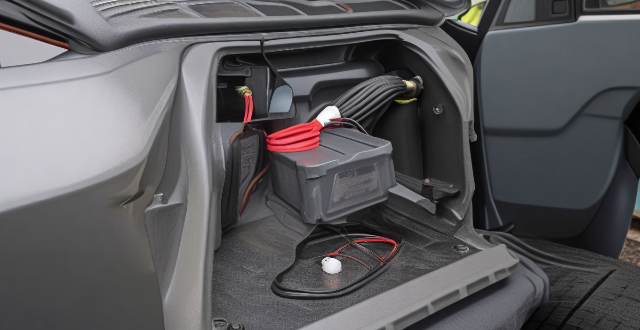
How often do you need to replace the batteries in a hybrid car ?
Replacing the batteries in a hybrid car is not a frequent task, and its lifespan can vary between 100,000 to 150,000 miles or even more. The lifespan of the battery pack can be affected by driving habits, climate, and maintenance. Signs of a failing battery pack include reduced fuel efficiency, decreased performance, dashboard warning lights, and unusual noises or vibrations. If you need to replace the batteries in your hybrid car, consult a certified mechanic, choose the right battery pack, have it installed professionally, and take your hybrid car for a test drive to ensure proper functioning.

How long do the batteries in a Series Hybrid Electric Vehicle last ?
The lifespan of batteries in SHEVs is influenced by factors like battery type, driving habits, climate conditions, and maintenance practices. Lithium-ion batteries are commonly used due to their high energy density and longevity, lasting typically 8 to 15 years under normal operating conditions. Driving habits such as frequent short trips or aggressive acceleration can reduce battery lifespan. Climate conditions, especially extreme temperatures, also impact battery health. Proper maintenance practices, including regular monitoring and avoiding overcharging, can prolong battery life. Estimating battery longevity involves consulting manufacturer data, monitoring battery health, adjusting driving habits, optimizing climate control, and scheduling regular check-ups. Adhering to best practices can significantly contribute to maximizing the lifespan of SHEV batteries.

How does a Series Hybrid Electric Vehicle compare to a Parallel Hybrid Electric Vehicle ?
Comparison between Series Hybrid Electric Vehicle and Parallel Hybrid Electric Vehicle highlights the differences in power transmission, battery dependency, fuel efficiency, performance, cost, complexity, and regenerative braking capabilities of both types. The series hybrid is more efficient for city driving, while the parallel hybrid suits highway driving better. The choice depends on the user's driving habits and needs, with both offering environmental and economic benefits over traditional vehicles.
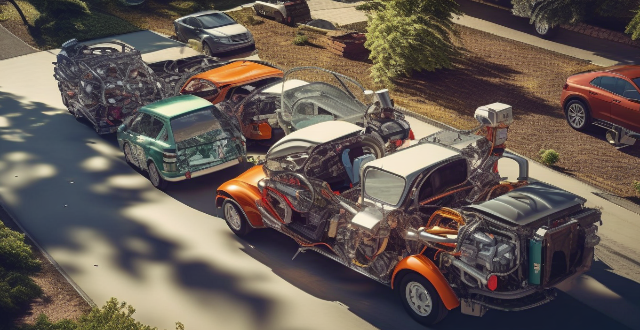
How long do hybrid cars typically last ?
Hybrid cars, which combine a conventional internal combustion engine with an electric motor, are known for their fuel efficiency and environmental benefits. The text discusses the lifespan of hybrid cars, battery life, maintenance, driving habits, usage, factors affecting hybrid car lifespan, tips for maximizing your hybrid car's lifespan, and concludes that many hybrid vehicles can last between 100,000 to 200,000 miles or more when properly maintained.
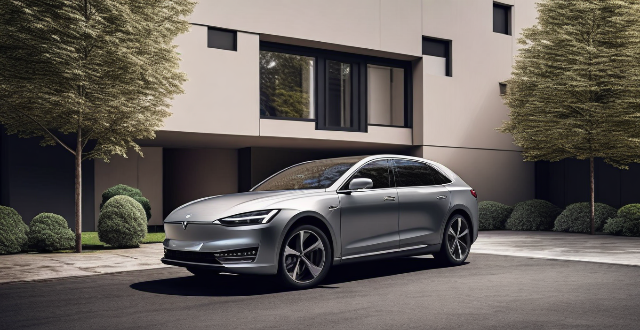
Can you drive a hybrid car in electric mode only ?
Hybrid cars offer the fuel efficiency of electric vehicles and the range of gasoline-powered cars. Some hybrids can drive in electric mode under certain conditions, such as battery charge level and speed. Advantages include reduced emissions and a quieter driving experience, but there are also drawbacks like limited range and slower acceleration. Examples include the Toyota Prius and Honda Insight.
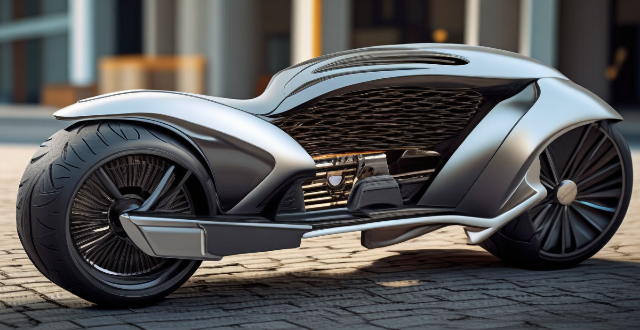
Are diesel hybrid vehicles better for the environment than regular diesel vehicles ?
Diesel hybrid vehicles, which combine a diesel engine with an electric motor, have the potential to be more environmentally friendly than regular diesel vehicles. They can offer improved fuel economy and reduced emissions of CO2 and particulate matter. However, the production of batteries for hybrid vehicles can result in higher upstream CO2 emissions, and advanced emission control systems are needed to significantly reduce NOx emissions. A comprehensive lifecycle analysis that takes into account all factors would provide a clearer picture of the environmental benefits of diesel hybrid vehicles compared to regular diesel vehicles.

Are gasoline hybrid cars better for the environment than traditional gasoline cars ?
Gasoline hybrid cars, also known as hybrid electric vehicles (HEVs), are becoming increasingly popular due to their potential environmental benefits. These vehicles produce fewer emissions compared to traditional gasoline cars and have better fuel efficiency. They also use regenerative braking technology, which captures energy normally lost during braking and stores it in the battery, further improving fuel efficiency and reducing emissions. However, gasoline hybrid cars also have drawbacks such as higher upfront cost, limited electric-only range, and potential environmental impacts from battery production and disposal. Traditional gasoline cars, on the other hand, are generally less expensive than gasoline hybrid cars and have a widespread refueling infrastructure. They are also often simpler and more reliable than gasoline hybrid cars. In conclusion, gasoline hybrid cars offer several environmental benefits over traditional gasoline cars, but they also come with drawbacks. The decision between a gasoline hybrid car and a traditional gasoline car depends on individual preferences, priorities, and circumstances.
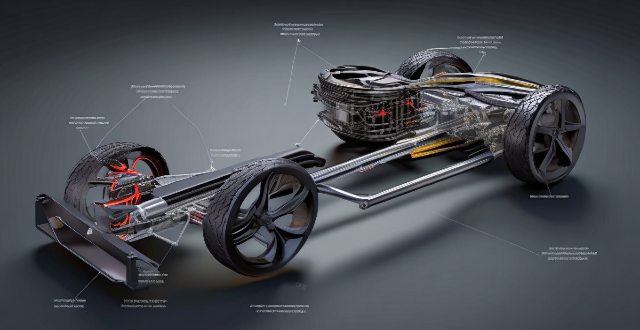
How does a gasoline hybrid car work ?
Gasoline hybrid vehicles, known as HEVs, merge an ICE with an electric motor for enhanced efficiency and reduced emissions. Key components include the ICE, electric motor, battery pack, transmission, and a generator/alternator. These cars can operate in various modes: fully on ICE power, purely electric, combined power, or through regenerative braking. The energy management controller optimizes power distribution for peak efficiency. Benefits of gasoline hybrids include better fuel economy, lower emissions, extended brake life, and potential tax incentives.
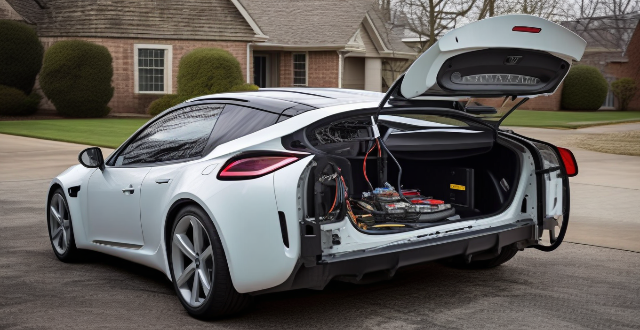
Can you convert a regular diesel car into a diesel hybrid car ?
Converting a regular diesel car into a diesel hybrid is possible but involves technical challenges, high costs, and potential legal and warranty issues. It requires installing a battery pack, integrating electric motors, and modifying the drivetrain and control systems. Professional assistance is recommended due to the complexity of the project. The financial investment may not be justified compared to buying a new hybrid vehicle. Legally, modifications could void the warranty and affect insurance coverage, and compliance with emissions and safety standards must be ensured.

Is it worth investing in a diesel hybrid vehicle for long-distance travel ?
Diesel hybrid vehicles offer high fuel efficiency and performance, making them suitable for long-distance travel. However, they come with higher costs and potential emission concerns. Alternatives like gasoline hybrids and electric vehicles might be worth considering depending on individual needs and circumstances.
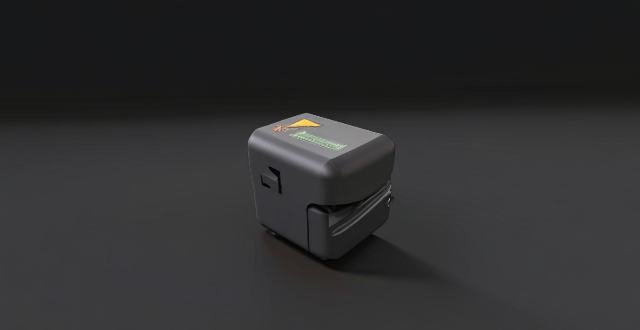
Can zinc-carbon batteries be recharged ?
Zinc-carbon batteries, commonly used in devices like flashlights and radios, are not designed to be recharged due to their chemical composition and physical structure. Attempting to recharge them can lead to safety risks and efficiency issues. Alternatives like nickel-metal hydride and lithium-ion batteries offer better performance and environmental benefits.

Are hybrid cars safe in an accident ?
Hybrid cars are generally as safe as traditional cars in accidents, featuring multiple safety measures like battery pack protection and automatic disconnection of high voltage systems. However, potential risks include battery fires and electric shocks, which manufacturers mitigate through advanced cooling systems and rapid de-energizing upon impact. Repair costs for hybrid systems can be higher due to specialized parts and labor requirements.

How do lithium batteries compare to other types of batteries ?
The text compares lithium batteries (Li-ion and LiPo) with other types of batteries in terms of energy density, charge retention, lifespan, charging speed, safety, cost, and environmental impact. Lithium batteries are found to have high energy density, low self-discharge rates, a longer cycle life, and can be charged quickly. However, they are more expensive upfront and pose specific safety risks. Other batteries may be initially cheaper but require more frequent replacements and have different safety concerns. Overall, the advantages of lithium batteries often outweigh their drawbacks, making them the preferred choice for modern portable electronics and large-scale applications.
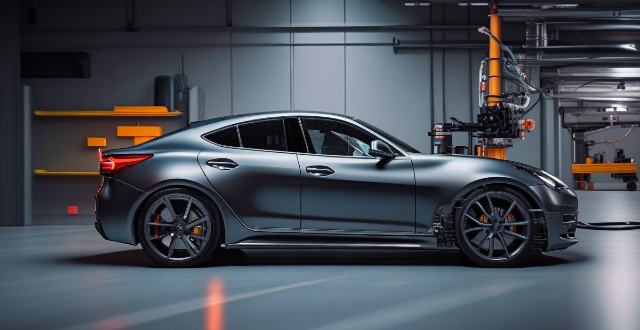
How does a hybrid car work ?
A hybrid car uses a combination of an internal combustion engine and electric motors to achieve better fuel economy and reduced emissions. It consists of key components like the ICE, electric motor(s), battery pack, transmission, control unit, and a charging system that includes regenerative braking. The car operates in various modes: starting with the electric motor, driving with either or both power sources, using regenerative braking for efficiency and battery charging, minimizing idling by shutting down the ICE at stops, and managing the battery's state of charge and health. Benefits include improved gas mileage, lower emissions, enhanced performance, and reduced wear and tear on vehicle components.

What is the fuel efficiency of a hybrid car ?
Hybrid cars are more fuel-efficient than traditional gasoline-powered vehicles, with an average range of 40-50 mpg in city driving and 35-45 mpg on the highway. This increased efficiency offers benefits such as reduced fuel costs, lower emissions, longer engine life, and potential tax incentives. If you're looking for a more environmentally friendly and cost-effective way to get around, consider purchasing a hybrid car.
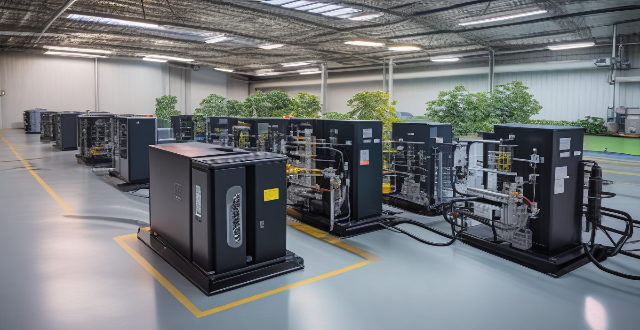
How do flow batteries compare to traditional chemical batteries ?
Flow batteries and traditional chemical batteries are both used for energy storage, but differ in aspects such as energy storage mechanism, power and energy density, lifespan and maintenance, and cost and scalability. Traditional chemical batteries store energy through chemical reactions within cells and have a fixed capacity, while flow batteries use external tanks of electrolyte solutions and have adjustable capacity. Traditional chemical batteries can deliver high power output per unit weight or volume and have moderate energy density, while flow batteries typically have lower power density but higher energy density. Traditional chemical batteries have a limited number of charge and discharge cycles before performance degrades and require regular maintenance, while flow batteries can undergo a larger number of cycles without significant degradation and require less maintenance. Traditional chemical batteries often have higher upfront costs and limited scalability, while flow batteries generally have lower upfront costs and offer more flexibility in scaling up. The choice between the two depends on the specific requirements of the energy storage application.
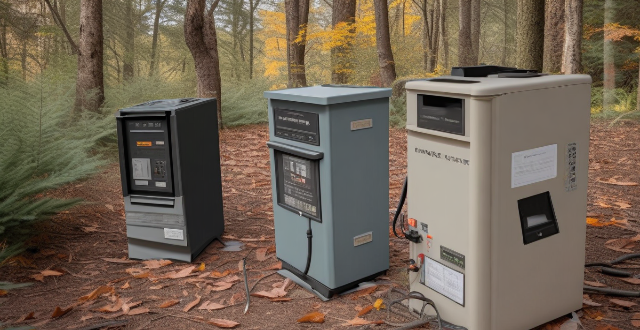
Are zinc-carbon batteries safe to use ?
Zinc-carbon batteries are a common type of battery used in many household devices, such as flashlights, remote controls, and toys. While they are generally safe to use, there are some precautions that should be taken to ensure their proper handling and disposal. These include avoiding short circuits by keeping the terminals from touching each other or any metal objects, storing them in a cool, dry place away from extreme temperatures and out of reach of children and pets, and disposing of them properly at a recycling center or store that accepts used batteries. Despite these precautions, zinc-carbon batteries offer several benefits, including being cost-effective, widely available, and having a long shelf life.

Can you tow with a hybrid car ?
Towing with a hybrid car is possible, but it depends on the specific model and its towing capacity. Some hybrids are designed for towing, while others are not. It's important to check your vehicle's manual or consult with the manufacturer to determine if your hybrid car can tow and what its maximum towing capacity is. Factors to consider when towing with a hybrid car include towing capacity, braking system, transmission, fuel efficiency, and battery life. The added weight of a trailer can impact these factors, so it's important to plan accordingly.

What are some emerging trends in the field of energy storage materials research ?
The text discusses the latest trends in energy storage materials research, focusing on solid-state batteries, flow batteries, metal-air batteries, supercapacitors, redox flow batteries, hybrid energy storage systems, nanostructured materials, smart grid integration, thermal energy storage, and organic/bio-based materials. Each section provides a brief overview of the technology's advantages and current research challenges.

Do hybrid cars produce less pollution than traditional gasoline cars ?
Hybrid cars generally produce less pollution than traditional gasoline cars, but the comparison is not straightforward and various factors must be taken into account.
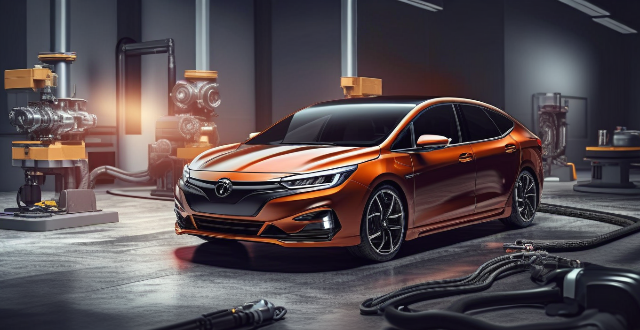
Do gasoline hybrid cars require special maintenance ?
This text discusses the maintenance requirements for gasoline hybrid cars, which combine a conventional engine with an electric motor for added efficiency. While these vehicles do not require extensive special maintenance, there are specific components that need attention. Regular maintenance such as oil changes, tire rotations, brake checks, and air filter replacements are still essential. Additionally, hybrid-specific maintenance includes monitoring battery health, checking the regenerative braking system, ensuring proper cooling of the electric motor, and maintaining transmission fluid levels. It is important to refer to the vehicle's owner's manual for specific maintenance schedules and seek out professional service when needed. By addressing both conventional and hybrid-specific maintenance needs, gasoline hybrid cars can run reliably and efficiently.
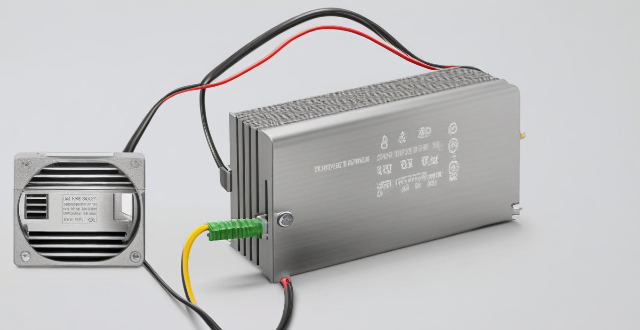
What are the benefits of using lithium batteries ?
Lithium batteries offer numerous benefits, including highLithium batteries offer numerous benefits, including highspan, low maintenance, safety They are ideal for portable electronics, electric vehicles, backup power systems, and more.

What are some popular diesel hybrid car models ?
Diesel hybrid cars are becoming increasingly popular due to their fuel efficiency and lower emissions. Here are some of the most popular diesel hybrid car models: The Audi A3 TDI e-tron is a compact luxury car that combines a 2.0-liter TDI diesel engine with an electric motor. It offers up to 150 horsepower and can travel up to 31 miles on electric power alone. The Volkswagen Jetta TDI Hybrid is a midsize sedan that features a 1.6-liter TDI diesel engine paired with an electric motor. It provides excellent fuel economy and low emissions, making it an ideal choice for environmentally conscious drivers. The Peugeot 308 HDi Hybrid is a compact hatchback that combines a 1.6-liter HDi diesel engine with an electric motor. It offers impressive fuel economy and reduced CO2 emissions, while still providing plenty of power and performance. The Skoda Octavia iV is a spacious family car that features a 2.0-liter TDI diesel engine combined with an electric motor. It offers up to 240 horsepower and can travel up to 37 miles on electric power alone, making it a great option for long trips. The Volkswagen Passat TDI Hybrid is a midsize sedan that combines a 2.0-liter TDI diesel engine with an electric motor. It provides excellent fuel economy and low emissions, while also offering plenty of space and comfort for passengers.
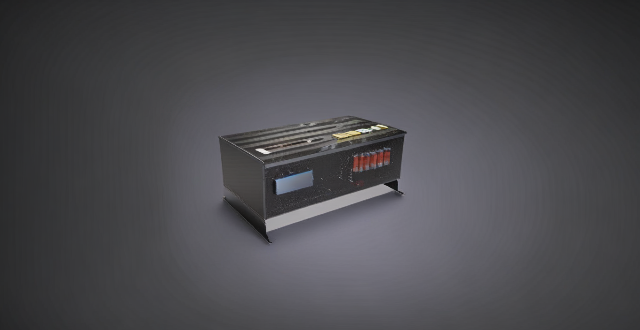
How do zinc-carbon batteries work ?
Zinc-carbon batteries are primary, single-use batteries that generate electricity through a chemical reaction involving zinc and carbon. Their construction includes an anode of zinc, a cathode of manganese dioxide mixed with carbon, an electrolyte, a separator, and a container. When in use, zinc is oxidized at the anode, releasing electrons and zinc ions, while the cathode accepts electrons and reduces manganese dioxide. This flow of electrons creates an electrical current. Over time, the battery discharges as the materials are used up, requiring replacement. Proper disposal is crucial to prevent environmental pollution from their heavy metal components.
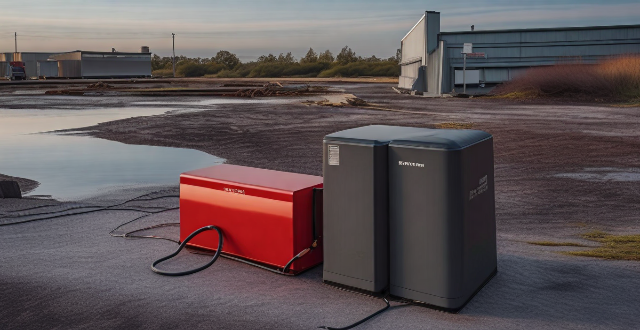
What are the advantages and disadvantages of using lithium iron phosphate batteries as power batteries ?
Lithium iron phosphate batteries are a popular choice for power batteries due to their longer lifespan, higher safety, environmental friendliness, and lower cost compared to other types of lithium-ion batteries. However, they also have some disadvantages such as lower energy density, slower charging speed, temperature sensitivity, and limited availability. Despite these drawbacks, lithium iron phosphate batteries remain a reliable and efficient option for many applications.
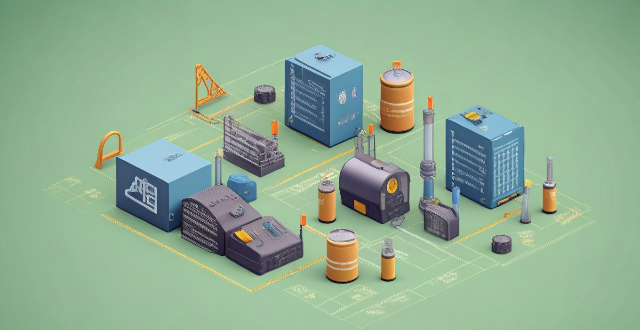
How do lithium batteries work ?
Lithium batteries work by using the chemical reaction between lithium ions and other materials to generate electricity. They consist of a cathode, anode, electrolyte, and separator. During charging, electrons flow from the cathode to the anode through an external circuit, causing lithium ions to move towards the anode and be stored there. During discharge, lithium ions move back to the cathode, releasing electrons in the process that provide power to a device. Lithium batteries have a high energy density, long lifespan, low self-discharge rate, and are used in various applications.
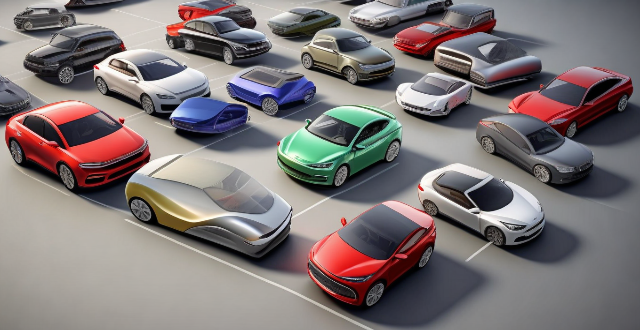
Are hybrid cars more expensive than regular cars ?
Hybrid cars are generally more expensive than regular cars, but offer potential long-term savings through improved fuel efficiency and similar maintenance costs. They also tend to hold their value better and may qualify for tax benefits or incentives.
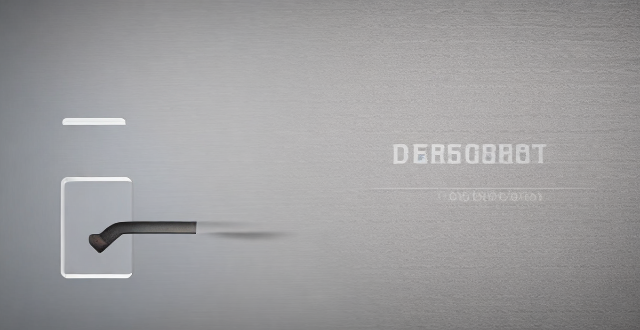
What are the main types of power batteries used in electric vehicles ?
The text discusses the main types of power batteries used in electric vehicles (EVs), including lead-acid, nickel-cadmium (NiCd), nickel-metal hydride (NiMH), lithium-ion (Li-ion), and lithium-iron phosphate (LiFePO₄) batteries. Each type has its own advantages and disadvantages, such as cost, lifespan, energy density, self-discharge rate, safety concerns, and environmental impact. The choice of battery type depends on the specific requirements and priorities of the vehicle manufacturer and end-user.
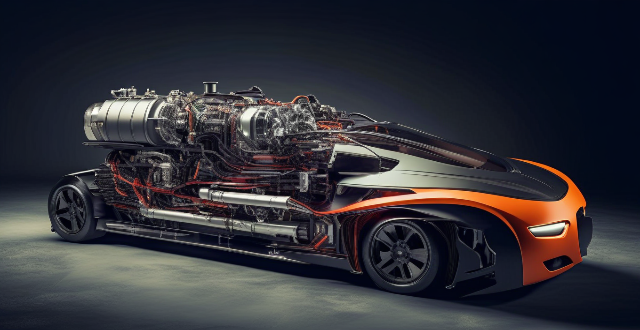
Can I still use gasoline in a gasoline hybrid car ?
Gasoline hybrid cars combine a traditional gasoline engine with an electric motor for improved fuel efficiency and reduced emissions. While they still require gasoline to operate the internal combustion engine, they offer significant savings in fuel costs over time. To maximize fuel efficiency in a gasoline hybrid car, drivers should practice eco-driving techniques, perform regular maintenance, and utilize regenerative braking settings. Gasoline hybrid cars represent a step towards reducing our reliance on fossil fuels and transitioning to cleaner energy sources.

What are the benefits of a gasoline hybrid engine ?
The article discusses the advantages of a gasoline hybrid engine, which is a combination of a traditional internal combustion engine and an electric motor. The benefits include improved fuel efficiency through reduced fuel consumption, regenerative braking, and start-stop technology; lower CO2 emissions and decreased pollutants resulting in cleaner air quality; and enhanced performance with instant torque, smooth driving experience, and extended brake life due to regenerative braking. Overall, gasoline hybrid engines provide a balance between power and efficiency, making them an attractive option for eco-conscious drivers.